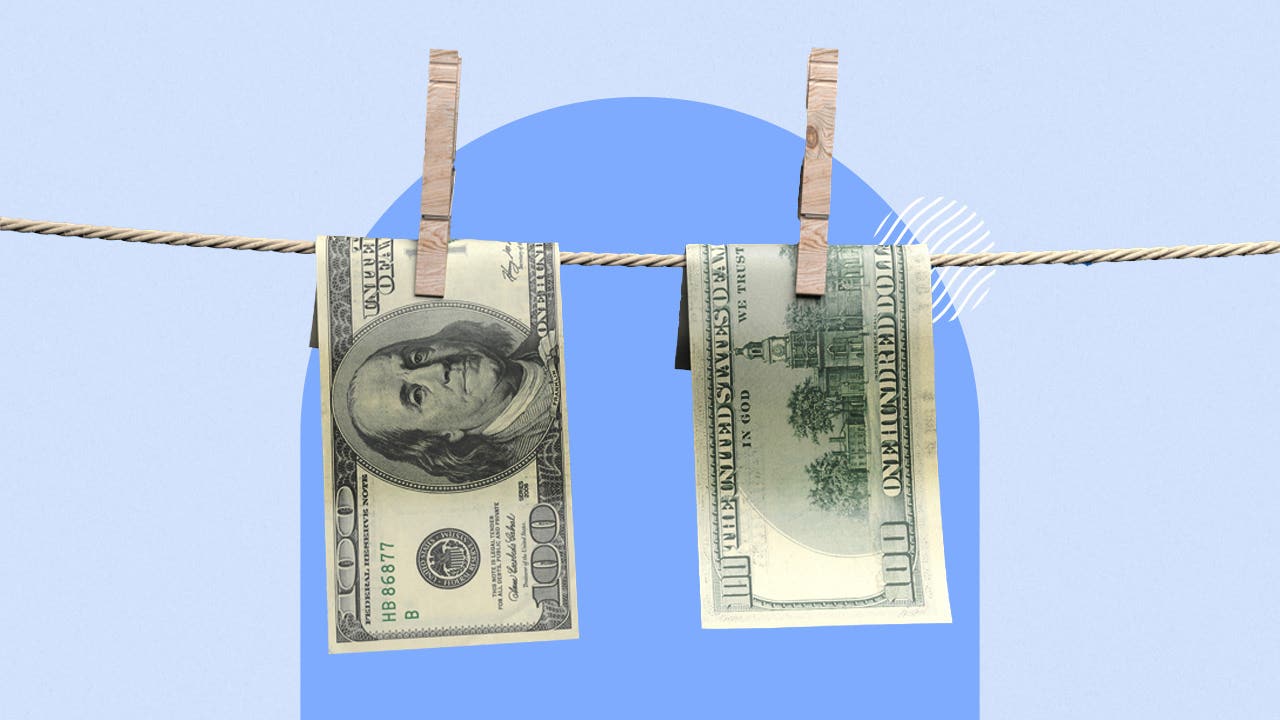Types of unsecured business loans

Key takeaways
- You can get many types of unsecured business loans, including term loans, business lines of credit and an SBA loan of $50,000 or less.
- You can use an unsecured loan to purchase inventory, an existing business, equipment, real estate and more.
- Unsecured business loans may still require you to sign a personal guarantee, backing the loan with your personal assets.
If you operate a small business, you may need to access cash you don’t have to get started or grow your business. One way to access cash is to apply for an unsecured business loan. These business loans help companies borrow money without having to offer valuable assets as collateral. They are riskier for a lender, so approval can be difficult.
However, getting approved for a traditional business loan can be difficult. In 2024, 44 percent of small businesses didn’t apply for a loan because they thought they wouldn’t qualify. There are many different unsecured business loan types, and alternative lending options are on the rise. Review all of your business borrowing options before you decide you won’t qualify.
Types of unsecured business loans
You can choose the best type of unsecured loan based on your funding needs, amounts, interest rates and terms.
Term loans
A term loan offers a lump sum of money upfront that you repay over a set term, usually on a monthly payment schedule. Repayment terms can be shorter term, lasting 24 months or less, or longer term, lasting five to 10 years.
Short-term loans offer you the chance to pay off your loan quickly but typically have higher interest rates and fees. Long-term loans offer a lower payment amount, but you’ll also pay more in interest because it’s a longer term. You may also face prepayment penalties if you repay your loan early.
The benefit of a term loan is the predictable payments, often with fixed interest rates. These consistent payments allow you to plan the exact amount you’ll repay each month, helping you manage the loan. Term loans work best for large, one-time purchases since you’ll need to reapply for a new loan if you need more funding in the future.

Pros
- Fixed interest rates
- Flexible repayment terms
- Predictable payments

Cons
- Good to excellent credit required to qualify
- Possible prepayment penalty
Best for: Getting an unsecured business term loan offers the best option for those looking for a one-time lump sum to fund the purchase of a business or other business expenses.
Business lines of credit
A business line of credit gives companies funding they can access as needed, up to a set credit limit.
Most business lines of credit are revolving, so as you pay back what you’ve borrowed, the credit limit replenishes, giving you access to more funding. You don’t have to pay additional origination fees or restart the loan application process if you repay the credit line and then borrow from it again.
Business lines of credit can help your business get funding for unexpected expenses or to cover uneven cash flow. Some also start with interest-only payments, which will improve your current cash flow. But many lines of credit offer lower borrowing limits than term loans, such as $250,000 or less, depending on what your business qualifies for.
Unsecured business lines of credit may also come with a variable interest rate. Variable rates can rise unexpectedly over time, increasing the cost of borrowing and the amount of your repayments. The line of credit interest rates may also be higher than you’ll find with term loans.

Pros
- Borrow money only as needed
- Can borrow more than once as you pay it back

Cons
- Often have variable interest rates
- Lower borrowing limits
Best for: A business line of credit is the best option when you have cash flow issues and need access to a revolving line of credit. It is the best for businesses needing to borrow money multiple times.
Invoice factoring
Invoice factoring is a type of financing that relies on the value of your unpaid invoices. You sell your unpaid invoices to a lender in exchange for an advance on the invoice amount, typically up to 90 percent. The factoring company then collects the invoices for you. Once the invoices are paid, the company pays you the rest of the invoice amount minus fees.
This type of unsecured business loan is helpful for businesses that invoice clients. Invoice factoring can help you get funding to cover operational expenses instead of waiting 30 to 90 days for clients to pay their invoices.
It also relies on the creditworthiness of your clients rather than your business’s credit, making it accessible financing for bad credit borrowers. Furthermore, this type of financing doesn’t put you in any additional debt.
But invoice factoring tends to come with high fees that may increase the longer the invoices go unpaid and fees come out of the unpaid invoice. You also can’t borrow more than the amount of your invoices, so this is typically an option if you don’t qualify for other types of financing.

Pros
- Borrow up to 90 percent of invoice amount
- Don’t take on any additional debt
- No credit check required for borrower

Cons
- Can’t borrow more than amount invoiced
- High fees
Best for: If you are a company that invoices clients, invoice factoring can help you cover expenses while you wait for an invoice to be paid. This option works well if you have bad credit or have trouble qualifying for other unsecured business loan types.
Merchant cash advances
Not technically a business loan, a merchant cash advance offers quick funding as an advance on your future debit or credit card sales. MCAs tend to have lenient qualifications to apply, accepting businesses with bad credit and low revenue.
But MCAs have aggressive repayments. You’re typically required to repay a percentage of your daily or weekly sales. MCAs are also known for charging high fees in the form of factor rates that can translate into APRs of 50 percent or more.
Factor rates use a multiplier like 1.10 or 1.50 to calculate the cost of the loan upfront. For example, you might borrow $12,000 with a factor rate of 1.5. The cost of the loan would then be $6,000 ($12,000 x 1.5 = $6,000).
Using a business loan calculator, you can see that the amount is similar to a $12,000 loan with a 41 percent APR and a 24-month repayment term or an 80 percent APR with a 12-month repayment term. When comparing loans with a factor rate, convert the factor rate to an interest rate to help you consider the loan costs.
|
1.5 factor rate |
41% APR |
80% APR |
|
|
Loan amount |
$12,000 |
$12,000 |
$12,000 |
|
Loan term |
12 to 18 months |
24 months |
12 months |
|
Cost of loan |
$6,000 |
$5,777.97 |
$5,809.16 |
|
Total loan amount |
$18,000 |
$17,777.97 |
$17,809.16 |

Pros
- Get funds quickly
- Lenient eligibility requirements
- No loan application required

Cons
- Charge high fees in the form of factor rates
- Repayments required as a percentage of daily or weekly sales
Best for: If you make a lot of sales through credit card payments, you may qualify for a merchant cash advance, but since borrowing money this way comes with high fees, this option is only best for those who can’t qualify for a business loan any other way.
Business credit card
Similar to a business line of credit, a business credit card allows you to charge expenses up to a set credit limit. Business credit cards are typically easier to apply for than a business loan since credit card companies mainly use your personal or business credit score to make a decision.
Business credit cards also often offer perks, such as cash back on purchases, partner discounts that let you save money on business software, or a 0 percent intro APR period. Plus, if you pay off the balance in full each month, you’ll avoid paying interest on the purchase.
However, unsecured business credit cards tend to be reserved for borrowers with good or excellent credit. If you have fair or bad credit, you may need to go with a secured card to build your business credit history. Some secured credit cards convert into unsecured credit cards after you boost your credit score.

Pros
- Borrow money only as needed
- Can borrow more than once as you pay it back
- Often come with perks or rewards

Cons
- Interest rates can be high
- Lower borrowing limits
- Must have good or excellent credit to qualify
Best for: A business credit card can be a great option if you have good or excellent credit and need to borrow money regularly. It works best when you have a guaranteed cash flow to pay back what you borrow quickly before interest accrues.
SBA loan
SBA loans are term loans or lines of credit backed by the U.S. Small Business Administration. If you default on the loan, the SBA guarantees repayment to the lender up to a certain percentage. SBA loans are designed for businesses that don’t qualify for traditional loans and are offered through approved lenders.
But they’re highly sought after because they come with long repayment terms and low maximum interest rates. You’ll need to be patient when applying for this loan since the approval process can take 30 to 90 days. You can also only get an SBA loan unsecured for loan amounts up to $50,000. Any higher and you may need to provide collateral to back the loan.

Pros
- Backed by the SBA
- Can qualify even if your business doesn’t fit traditional business loan requirements
- Unsecured loans up to $50,000

Cons
- Competitive application process
- Takes longer than other business loans to get approved
Best for: SBA loans are a great option for businesses with trouble qualifying for other loan types and have the time to wait for the loan funds. You’ll need to gather extra documents and be patient to get approved, as the process can be long.
What can unsecured small business loans be used for?
Unsecured small business loans can be used for a variety of purposes, and the type of loan you choose may depend on your reason for funding. You might use an unsecured business loan for:
- Purchasing new or used equipment
- Buying inventory
- Funding startup costs
- Purchasing an existing business
- Covering bills during uneven cash flow
- Buying real estate for an office or store
- Refinancing previous business loans
- Consolidating business loans
- Building credit
Depending on the type of loan and the lender, getting funding can take several days to a week to achieve. If you need fast funding, look into top online lenders that offer funding within 24 to 48 hours.
The bottom line
Choosing the right type of unsecured business loan will depend on your business finances and how you’ll use the funding. The best unsecured small business loans will offer you low interest rates, favorable repayment terms and low fees.
Once you choose a type of loan, compare lenders and prequalify or apply for multiple loans to see which one gives you the best offer. You’ll also need to see if the loan payments fit into your budget, helping you stay on top of managing your business loan.
But while unsecured small business loans don’t require collateral, you may need strong credit and revenue to qualify. If you can’t quite meet the requirements, consider a secured business loan or alternative financing to get the funding you need.
Frequently asked questions
Why we ask for feedback Your feedback helps us improve our content and services. It takes less than a minute to complete.
Your responses are anonymous and will only be used for improving our website.
You may also like

How much can you borrow with a business loan?

How to apply for a fast business loan

Where to get a bad credit business loan

Types of small business loans offered at banks


